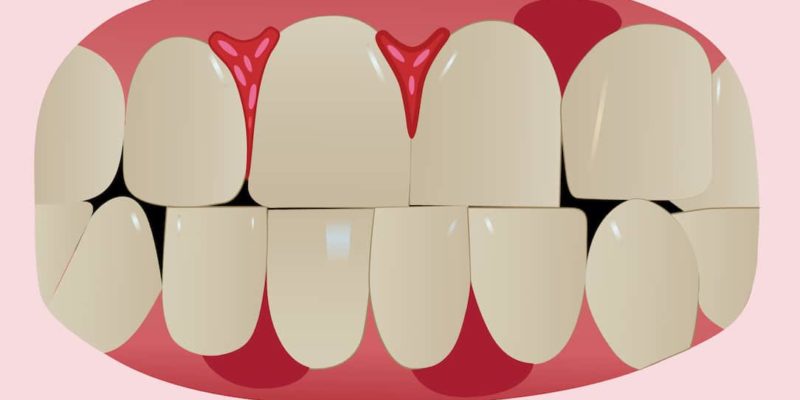4 Reasons Why You Could be Experiencing Bleeding Gums

If you are brushing your teeth and notice blood in the sink, that is a sign that there is something off with your oral health. Bleeding gums are a sign that there’s inflammation in the gums. When this happens, it’s often a sign that you are beginning to develop or have already developed gum disease due to plaque buildup on the teeth. However, the bleeding can also be a side effect of medical conditions or medication.
4 Reasons Why You Could be Experiencing Bleeding Gums
If you’re experiencing abnormal bleeding of the gums, here are 4 reasons it could be happening:
Gum Disease
The most common reason for bleeding gums is gum disease. Gingivitis is when plaque stays on the gum line too long. Plaque is bacteria that sticks to your teeth, and over time if not removed, can turn into tartar. Brushing and flossing can help remove plaque, but only if you’re doing it properly. If you let plaque develop, bleeding can increase. Along with the bleeding, other signs of gingivitis include puffy gums and soreness in the mouth (especially near the gums).
If not treated, gingivitis develops into periodontitis. Periodontitis is an advanced form of gum disease that causes an infection of the gums, jawbone, and other tissues in the mouth.
Pregnancy
Being pregnant can make women more susceptible to gum disease and cavities. In fact, nearly 75% of pregnant women will have gingivitis, which causes red, swollen, and bleeding gums. This is due the hormonal changes a woman faces throughout pregnancy. Further, periodontitis in pregnant women can cause problems for the baby at birth, including low birth weight and premature births. If you’re pregnant, it is important for your health, and your baby’s health, to continue seeing your dentist throughout the duration of your pregnancy.
Side Effects
Bleeding gums can also be a result of having underlying medical conditions or because of the use of certain medications. For example, those with the following conditions are more likely to experience problems with their gum health:
- Bleeding disorders
- Certain cancers, like Leukemia
- High cholesterol
- Diabetes
Further, people or certain medications, like blood thinners and other prescription drugs, can also experience sensitive gums.
Vitamin Deficiencies
Those who are deficient in certain vitamins, specifically vitamin C and vitamin K, are more likely to have gums that bleed easily. Your doctor can easily test you for deficiencies, however, if you need to add more vitamin-rich foods to your diet, try: citrus fruits, greens, tomatoes, strawberries, bell peppers, and more.
Occasional Bleeding
If your bleeding isn’t ongoing, it’s most likely caused by over brushing or brushing your teeth too hard. If your bleeding lasts more than a couple of days and you’re sure you’re not brushing too hard, make an appointment to come see Dr. Ania to get to the bottom of the issue.
Bleeding Gum Risks
When a person has bleeding gums and other ongoing oral health issues, it can cause a number of other health problems. When someone has gum disease, it can increase their risk of suffering from a stroke or heart attack. In a study done by Columbia University, doctors measured bacteria in the mouths of men and women with no history of heart disease. They found that the more bacteria the person had, the more narrow and clogged the arteries were. While more studies are needed, it can be concluded that taking care of your mouth should be a stop priority to also protect your heart health.
Proper Oral Care
To best take care of your gums, you need to know how to care for your teeth appropriately. Having a strict oral hygiene routine that you don’t compromise on will benefit the health of your teeth and gums. We recommend practicing the following for optimal dental health:
- Brushing your teeth twice a day, using a soft-bristled brush to help prevent harsh brushing. Gently brush in small circles, really focusing on the gum line.
- Flossing at least once a day to clear debris from between the teeth that can cause plaque buildup.
- Limit sugary drinks and foods that contribute to bacteria buildup in the mouth.
- See your dentist at least twice a year for deep cleanings and thorough exams.
Make an Appointment with Dr. Ania
Here at Dr. Ania’s office, we pride ourselves in customizing every aspect of your care, including your cleanings. Our hygienist will spend a lot of time educating you about your gum health and how to best maintain a healthy mouth. It’s our top priority that your visit with us is as comfortable as possible, offering services like relaxation therapy, personal music, and a selection of movies to make your appointment as enjoyable as possible. Call today for an appointment at (303)-872-9940.


